Radar Online
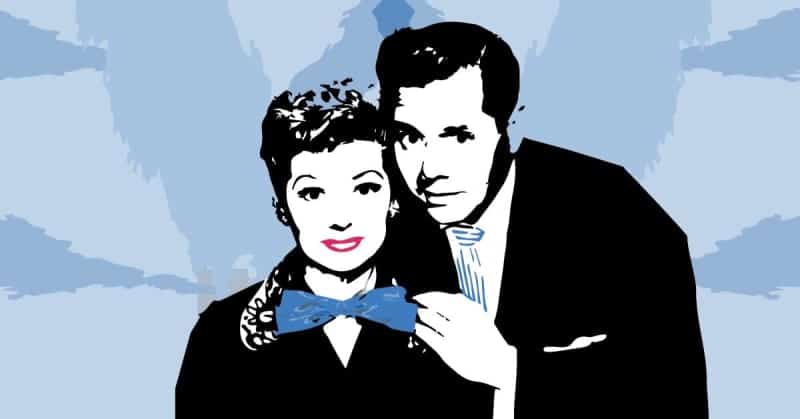
When Lucille Ball first met Desi Arnaz she had a black eye and was wearing a slinky gold lame dress slit halfway up the thigh.
She was in costume as a stripper for the 1940 movie Dance, Girl, Dance, and Desi thought she “looked like a two-dollar whore who had been badly beaten by her pimp.”
Lucille barely gave him a thought as they were introduced at the studio commissary by director George Abbott. She couldn’t even remember the Cuban’s funny Spanish sounding name.
It was an inauspicious start to one of Hollywood’s most tumultuous romances.
Several hours later, however, Lucille wandered back on set for a script reading, freshly showered and wearing a yellow sweater and tight-fitting beige slacks. Both she and Desi had been signed up to star in the college football musical Too Many Girls.
Not recognizing her, Desi turned to the piano player and exclaimed in his rich accent, “Man, that’s a hunk of woman!”
The pianist reminded him they’d already met, but just to make sure, Desi called out, “Miss Ball?”
“Why don’t you call me Lucille? And I’ll call you Dizzy,” she replied, according to biographer Stefan Kanfer in his book Ball of Fire.
“It was like Wow! A bolt of lightning! Lucille fell like a ton of bricks,” said her Dance, Girl, Dance co-star Maureen O’Hara.
Two days later, Lucille split with her older boyfriend, movie director Alexander Hall, and Desi called off his engagement to dark-haired dancer Rene de Marco.
“A Cuban skyrocket,” Lucille would write later, had “burst over my horizon.”
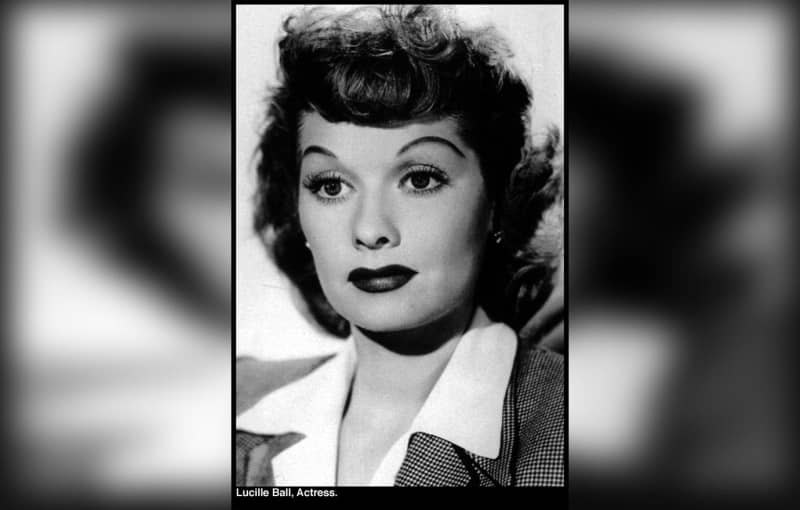
Then 28, she’d found time for romance during her RKO B-movie days. There was a brief 1938 engagement to tough-guy actor Broderick Crawford. But the betrothal was a cover for her adulterous relationship with married Hollywood producer Pandro Berman. She’d also dated William Holden, George Raft and Raft’s bodyguard Mack ‘Killer’ Grey, who was said to have organized crime connections.
But Desi was different.
Friends and studio execs privately expected the fling to flame out just as quickly as it began. Lucille had previously shown a penchant for older, powerful partners. What could she see in a 23-year-old conga king six years her junior with a slick line and a checkered history with women, Betty Grable among them.
But Lucille had already decided Desi was the one.
“It was not until I met Desi that I knew I was in love with the man I wanted for the father of my children,” she said.
The world would one day grow to love “Lucy,” but off-screen Desi was the only person who would call her by that name and not Lucille.
“I didn’t like the name Lucille,” he said. “That name had been used by other men. Lucy was mine alone.”
Right from the start, sexual jealousy haunted their relationship. They spent an estimated $30,000 in long-distance calls as lengthy periods apart – he touring with his band and she making movies – inevitably led to suspicions of cheating.
It didn’t help that Desi was an inveterate womanizer used to getting his own way.
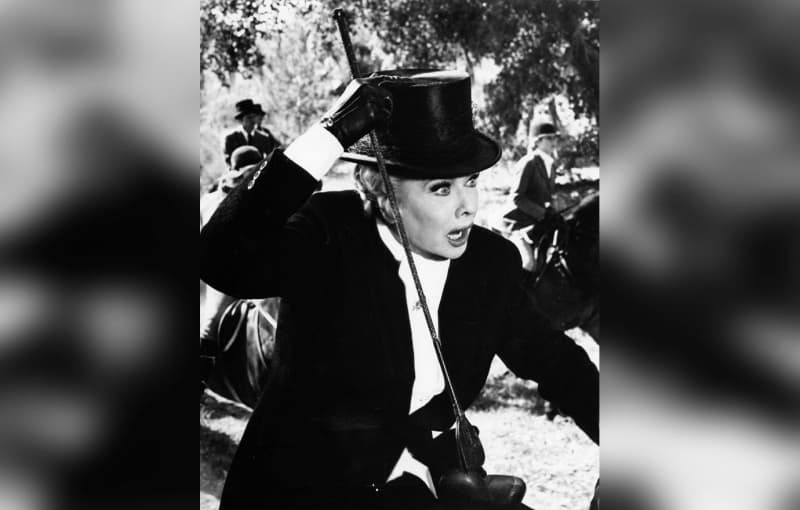
Born on March 2, 1917, in Cuba in the city of Santiago de Cuba. Desi’s father, Desiderio, was the mayor, his uncle was police chief and his mother, Dolores, was said to be one of the ten most beautiful women in Latin America.
As a young teenager, he had his own boat, car and a stable of horses, but that was all about to change. The 1933 political revolution left his father in jail and forced his mother to flee with him to Havana.
His father was sentenced to six months behind bars and was eventually allowed to leave for Miami, where Desi joined him in 1935. His mother followed.
After working a string of menial jobs, he won a big following with his explosive follow-the-leader conga performances just at a time when Latin music was sweeping the United States.
His success led him from Miami to Manhattan to Broadway…and ultimately to Lucille.
Initially, the battles over Desi’s wandering eye only served as an aphrodisiac for the fledgling romance. Making up was as fiery as the fall-outs.
The big marriage proposal, when it came six months after that fateful first meeting, would be like a scene out of I Love Lucy, the show that would later make them the world’s best known TV spouses.
In their book Desilu: The Story of Lucille Ball and Desi Arnaz, authors Coyne Steven Sanders and Tom Gilbert wrote how the comedian talked in the interview about why she and her Cuban beau could never marry.
“It could never work,” she said. “I wouldn’t want to end up one of those neglected musician’s wives who sit home doing needlepoint while their husbands are barnstorming around the country.”
But less than one hour later, when they were finally alone, Desi proposed. Not only that, he revealed he’d already made all the plans for them to elope to Connecticut the next morning. They would leave at 6 a.m. to get hitched and make it back in time for his 11 o’clock matinee.
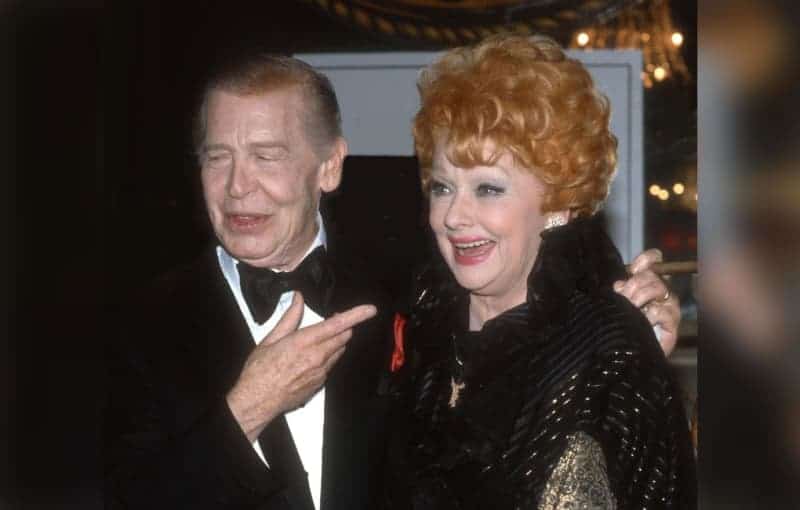
On the marriage license, Lucille listed her age as 26 – three years younger than she really was – and Desi, who was 23, added two years to close the age gap even further.
Ominously, the bridge wore black. The wool dress was the only thing she had packed that was remotely suitable on such short notice. Desi had forgotten to buy a wedding band so his manager ran into a Woolworth’s and bought a brass ring from the costume jewelry counter. She wore it for the rest of their marriage.
“My friends gave the marriage six months,” said Lucille. “I gave it six weeks.”
Yet, flushed with excitement and head over heels in love with the handsome, charming bandleader, Lucille hoped the match would last forever.
Considering their mercurial temperaments, their age difference and his Casanova reputation, few would bet on the marriage capturing the hearts of the nation and enduring, albeit with many rocky moments, for two decades.
“It’s amazing that two people from such different backgrounds and geographical origins ever got together,” said Desi later. “That was perhaps part of our attraction and also, I am sure, the cause of many of our arguments, fights and other problems.”
After years of struggling to be a star she was back playing a supporting role in the relationship.
Even on their wedding night, according to Kanfer, Desi asked Lucille to get up and fetch him a glass of water because he was thirsty. “I was out of bed and running the tap in the bathroom before I woke up sufficiently to wonder why in the hell he didn’t get it himself,” she recalled.
If they went out to a restaurant, it would be Desi who chose what they would eat. He banned her from riding in taxis because it put her too close to a strange man.
A year into the marriage Lucille became obsessed with her husband’s philandering and upset over the time they were spending apart. As she would tell her friends, “You can’t get pregnant down a telephone.”
In 1942, during World War II, Desi joined the Hollywood Victory Caravan to raise war bonds, along with such stars as James Cagney, Bob Hope and Olivia de Havilland. His skirt-chasing shocked even the practiced adulterers of Hollywood.
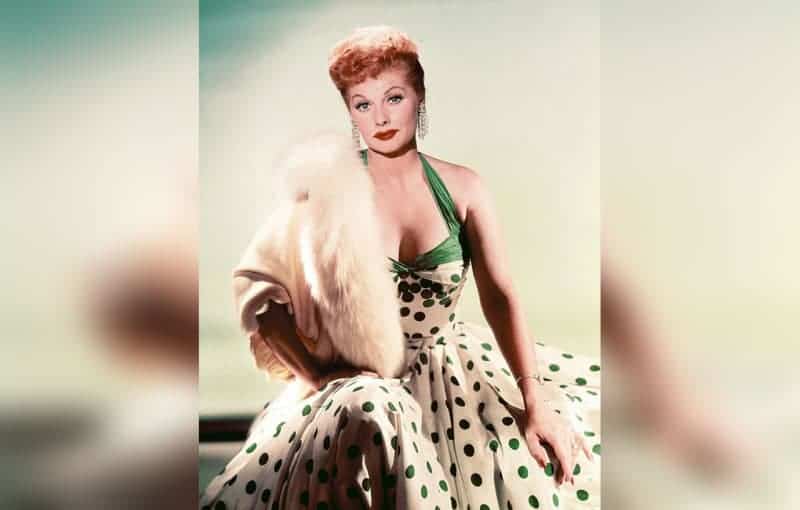
As Kathleen Brady wrote in her biography Lucille: The Life of Lucille Ball, “Desi felt that as long as he truly loved Lucille alone, his blatant promiscuity in the presence of her colleagues was irrelevant.”
By 1944, Lucille couldn’t put up with it any longer. She filed for divorce, convinced he was ‘screwing everybody’ at the hospital near Los Angeles where he was stationed with the Army Medical Corps.
But before long Desi charmed his way back into his wife’s affections and in 1946 they even went through with a second marriage ceremony, this time in a church, because his mother believed the reason they hadn’t yet had children was because they were never wed in a proper Catholic service.
It’s not that Lucille believed she could ever reform Desi. But she admitted, that she would “rather quarrel and make up with him than anyone else in the world.”
In 1950, having been dropped by RKO and too old to be groomed as a bona fide leading lady, Lucille was starring on the radio in the popular show My Favorite Husband with actor Richard Denning.
The comedy was so successful CBS decided to launch a version on the brand-new medium of television. Never one to miss an opportunity, Lucille jumped on the plan as a way to get what she wanted – to work with Desi.
Lucille reckoned that by having Desi as her husband on-screen and off, she would keep him away from the temptations of the road, put some real effort into starting a family and create a massively successful TV show to showcase her slapstick genius.
In almost every respect her scheming paid off.
CBS was reluctant at first, worrying American audiences wouldn’t relate to a Cuban husband. But Lucille and Desi were unbowed. They started their production company, Desilu, and took their own show on the road, turning it into such a hit that the network decided to buy it and put it on the air.
I Love Lucy went into production in 1951 when Lucille was still 39 years old.
After having three miscarriages, Lucille finally gave birth to her first child, Lucie Desiree Arnaz, just one month before her 40th birthday. A year and a half later, her son, Desiderio Alberto Arnaz, known as Desi Jr., was born.
Lucille finally had the perfect Hollywood vehicle for her considerable comedic talents, she had the kids she yearned for and her husband by her side.
It really was all too good to last.



